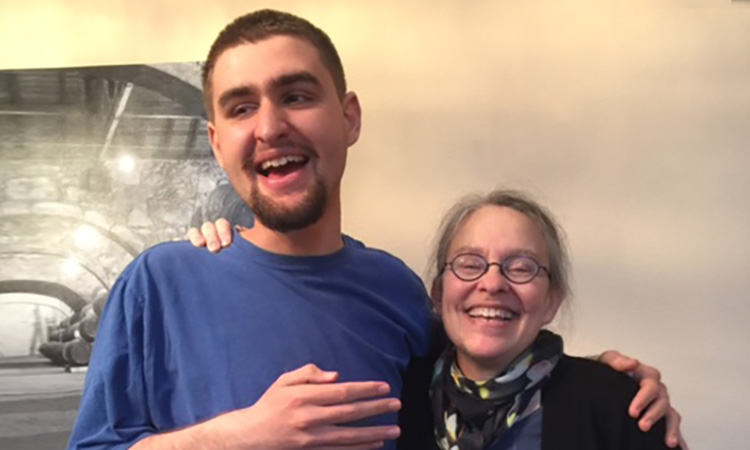Voices

A Family in Crisis: Danny’s Story

by Nina Spiegelman, mother
Alameda County
My son, Danny, is 21 years old and has autism and mental health disabilities. Throughout his life, Danny has faced tremendous adversity – more than most children without a profound disability. He has faced significant crises related to family tragedies and his mental health and severe behavioral challenges. Sadly, the systems that are designed to prevent and support individuals with developmental disabilities through crises lack the person-centeredness, flexibility, authority, funding, and, sometimes, willingness to truly help the person and his family.
The first crisis in Danny’s life occurred when he was a young child. His beloved older brother, Anthony, then 8, was diagnosed with a brain tumor. Our family’s center of gravity shifted to saving Anthony. Heroic efforts by his dad and medical team allowed Anthony to live for seven more years. But after developing a second spinal cancer that rendered him quadriplegic, Anthony eventually died.
Sorrow overwhelmed us all but for Danny, at age 12, massive grief combined with autism and puberty was devastating. Danny became anxious, obsessive, agitated and increasingly aggressive.
His father, Robert, threw himself into Danny’s care and treatment and convinced the school district to pay for an expensive, new non-public school. But a few months later, Danny was expelled because of his behaviors. There were no appropriate alternatives, so Robert left work to home school him. Despite the use of an ever-increasing load of psychotropic medication, Danny’s aggression made it impossible safely to take him anywhere and we lived in isolation and despair.
Robert became severely depressed and bravely tried every possible treatment. Danny grew more anxious and agitated as his adored dad struggled. When Danny was 16 years old, his father committed suicide. It completely shattered Danny. Within two weeks of Robert’s death, I made my first 911 call.
After a short time in a psychiatric hospital and a change in medication, Danny moved into a well-staffed group home and a supportive non-public school, although these were the only options available that could meet his needs. The frequency and intensity of his aggressive episodes diminished to nearly zero. In these nurturing environments, Danny blossomed into a very verbal, social, intuitive and charming young man.
Sadly, at age 18, Danny aged out of the adolescent group home. There was nothing in the regional center offerings remotely resembling that enriched environment. Danny moved to an adult group home that, while clean and sweet, provided none of the structure and stimulation necessary for Danny’s survival.
After a honeymoon period at the adult group home, agitation and impulsivity resurfaced. During the second year at the adult home, full blown agitation and aggression returned resulting in a second hospital admission – although just getting him admitted into an adult psychiatric unit with his additional developmental disability required extraordinary advocacy.
Danny became stabilized in the hospital, but we were facing a frightening situation: returning to the group home would be disastrous, the regional center’s one adult crisis home was full, and there were no appropriate residential placements available.
Thankfully, through my parent group network contacts, I found a home with an excellent caregiver and staff providing the fully supported environment Danny desperately needs. Unfortunately, the regional center could not fund it because the agency is no longer a regional center vendor (because they couldn’t take the bureaucracy), so I must pay out-of-pocket, which is a huge financial burden for a single mother.
Danny has lived in this home for over a year and is once again thriving. But I remain concerned for his future. The systems in general are extremely unresponsive to the needs of individuals who have severe behavior challenges or are dually diagnosed. In fact, the intersection of developmental disabilities and mental health is an area that is so bereft of preventive services and safety net options that crises are inevitable. The few options for serving these individuals, if they do exist, are either poorly managed or have a mile-long wait list.
We will work together with other families to explore new possibilities for families facing a dual diagnosis and look forward to the Self-Determination Program, which will allow us to create a unique support system for each of our children.


 Sergio Aguilar-Gaxiola, MD, PhD
Sergio Aguilar-Gaxiola, MD, PhD